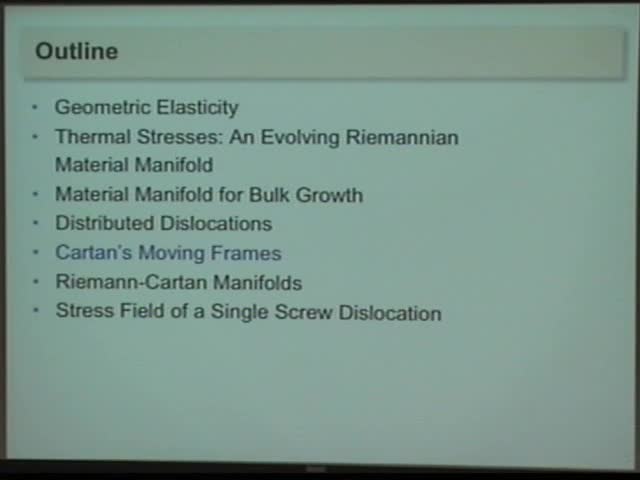Geometric Anelasticity
Presenter
May 19, 2011
Keywords:
- Nonuniform temperature distributions
MSC:
- 37D25
Abstract
There are different sources of residual stresses in solids. Nonuniform temperature distributions and defects (e.g. dislocations) have been of interest in mechanics in the last few decades (and of course bulk growth more recently). Distributed dislocations were geometrically studied by Kondo and Bilby (among others) in the 1950s. Dislocation density tensor has been identified with torsion of an affine connection (of a flat material manifold) in the literature. However, the successful phenomenological models in finite plasticity have been non-geometric and overwhelmingly based on a multiplicative decomposition of deformation gradient into elastic and plastic parts. This idea has been the main kinematic assumption in the early theories of bulk growth as well. In this talk I will outline a theory of anelasticity in which material manifold has an evolving geometry. In this framework elasticity is a very special case for which geometry of the material manifold is time independent. A connection will be made between Cartan's moving frames and decomposition of deformation gradient. The Riemannian manifold corresponding to a flat Riemann-Cartan material manifold will be defined. As an example of its application, I will show how to construct the material manifold of a single screw dislocation. Then the residual stress field of a single screw dislocation in an incompressible nonlinear elastic solid will be obtained.
